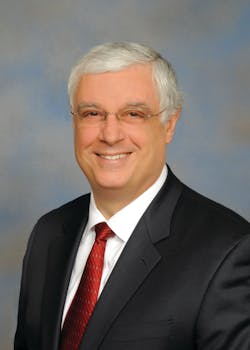ACI-NA Addresses GA, Cross-Border Lobbying
Airports Council International-North America (ACI-NA) recently announced two initiatives which could impact the future look of the organization, in particular with cross-border lobbying with Canada.
In February, the ACI-NA board of directors was expected to adopt a proposal to permit general aviation airports to join the association. And, in January, ACI-NA began the process of assimilating the Canadian Airports Council (CAC) into the Washington-based organization. The CAC had been based in Ottawa; its president, Daniel-Robert Gooch, will retain his position and remain based in the Canadian capital.
The GA move follows the creation in 2011 of the General Aviation Airports Coalition (www.gaairportcoalition.org), which was formed to address the issues related to GA facilities.
ACI-NA represents local, regional, and state governing bodies that own and operate commercial airports in the U.S. and Canada. President Greg Principato, who joined the association in 2005, recently spoke with airport business about the changes. Following are edited excerpts of that discussion ...
ab: What was the genesis for the general aviation airports initiative?
Principato: It’s something that has been talked about it for awhile. Our bylaws say that we’re open only to those airports that are certificated to receive commercial service.
The ACI-World bylaws, with which we are not allowed to be contradictory, say that general aviation airports are permitted. We’re not out of compliance. Some of our leadership over the years has thought that if we’re truly the voice of airports we should offer membership and benefits to all airports.
The result is the our small airports committee has put a proposal to the board to allow general aviation airports to join ACI-NA. It’s likely to be approved.
ab: Do you anticipate the move will have a significant impact on the association’s activities?
Principato: I don’t know if it’s going to have a lot of impact; a lot of GA airports are active with AAAE, and I know there’s a small association put together to bring together GA airports. I think some might want to join in order to participate in the committees and get the information you get as a member of ACI. I’m guessing that because there are other alternatives there won’t be a huge wave that will join, but some will. There are some general aviation issues, like on the security side, that we’re already working on.
ab: Isn’t it true that, as an association that represents airport systems, you already have some GA airports as members?
Principato: That’s a good point; we actually have GA airports because their airport system is a member. For example, the Port Authority of New York & New Jersey is a member, so Teterboro is a member.
ab: Would you expect to implement some sort of tiered dues structure?
Principato: It wouldn’t be an onerous amount; the board will decide that. The small airports committee has proposed one way forward. The proposal calls for a couple of tiers to it.
ab: Regarding the CAC, is it accurate to say you are absorbing the group?
Principato: I prefer the word integration. The Canadian airports are all members of ours anyway; we’re not a U.S.-only organization. The way it worked is, if you were a member of the Canadian Airports Council you were a member of ACI-NA. The CAC took care of lobbying and working with the regulators and Parliament; and Canadian members could participate in our committees.
A number of things came up, one of which is people looked at what was going on up in Canada and said we’re paying for things like putting on conferences that ACI-NA is already doing. It could be a lot more efficient if we did away with that. That was a big part of the impetus.
ab: Do you expect this will further enhance cross-border lobbying efforts?
Principato: There are an increasing number of issues -- security facilitation, for example – where the cross-border interests are more closely aligned. Instead of having two organizations that try to dance with each other, have one organization and be really integrated. The bylaw amendments passed over the last two years enable that to happen.
Two more Canadian voting members have been added to allow for more representation on the North America board. The CAC board will remain in place as a policy board to oversee the legislative and regulatory work of the office in Ottawa. We will have a U.S. policy board, plus five past chairs, that will oversee our legislative and regulatory work.
There will be some growing pains. At some point, the Canadian Airports Council will go away as a separate legal entity. It will be basically be the Ottawa office of ACI-NA and be known as the Canadian Airports Council, so when the person that runs the office there goes to Parliament Hill he’s president of CAC.
In terms of policy issues, you’re not going to Parliament Hill and saying you’re taking your orders from some guy in Washington, just as I don’t go to Capitol Hill saying I’m taking orders from Montreal [ACI World headquarters]. He has a separate policy board from which he gets that direction.
There’s a lot of enthusiasm about it. I think people just thought it made sense. A lot of the issues around the world have a lot of commonality – financial; security; environmental, and so forth. It didn’t make sense to have two sets of work, two sets of activities.
